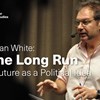reversing
Women's experience of child death over the life course: A global demographic perspective
AbstractThe death of a child affects the well-being of parents and families worldwide but very little is known about the scale of this phenomenon. We provide the first global overview of parental bere
Debating demography
This week the newspaper Upsala Nya Tidning published an article by Joakim Palme, former CEO at the Institute, on how we can meet the challenge of an ageing population. Educating young people is necess
Arne Jarrick & Maria Wallenberg Bondesson: The cultural dynamics of law-making – A world history
Prof. Arne Jarrick and PhD. Maria Wallenberg Bondesson, Centre for the study of Cultural Evolution at Stockholm University and Institute for Futures Studies.ABSTRACTOur presentation gives significant hig
#MeToo, Social Norms, and Sanctions
in: The Journal of Political Philosophy, Volume 28:3, s. 273-295 (2020) In October 2017, following the Harvey Weinstein scandal, US actress Alyssa Milano called upon victims of sexual harassment to uni

The Future as a Political Idea - Professor Jonathan White
Introduction to Jonathan White's new book In the Long Run: the Future as a Political Idea. A revealing history of the future as a political idea, from the Enlightenment to the current climate crisis.

Magnus Linton
I made my debut in 2000 with Veganerna (The Vegans) and in spring 2019 I will be releasing the book Text & Stil - om konsten att berätta med vetenskap (Text & Style - about the art of using scienc(2005), (2007), (2010), (2012), and (2015), where I told the fascinating story about the rise and fall of Swedish drug politics.
Against lifetime QALY prioritarianism
Journal of Medical Ethics 44: 109-113. doi.org/10.1136/medethics-2017-104250 Abstract Lifetime quality-adjusted life-year (QALY) prioritarianism has recently been defended as a reasonable specification o
Comparativism and the Grounds for Person-Centered Care and Shared Decision Making
Journal of clinical ethics 28(4): 269-278. Abstract This article provides a new argument and a new value-theoretical ground for person-centered care and shared decision making that ascribes to it the rol
Different Populations Agree on Which Moral Arguments Underlie Which Opinions
Frontiers in Psychology AbstractPeople often justify their moral opinions by referring to larger moral concerns (e. g., “It isunfairif homosexuals are not allowed to marry!” vs. “Letting homosexuals matraditions!”). Is there a general agreement about what concerns apply to different moral opinions? We used surveys in the United States and the United Kingdom to measure the perceived applicability of eight concerns (harm, violence, fairness, liberty, authority, ingroup, purity, and governmental overreach) to a wide range of moral opinions. Within countries, argument applicability scores were largely similar whether they were calculated among women or men, among young or old, among liberals or conservatives, or among people with or without higher education. Thus, the applicability of a given moral concern to a specific opinion can be viewed as an objective quality of the opinion, largely independent of the population in which it is measured. Finally, we used similar surveys in Israel and Brazil to establish that this independence of populations also extended to populations in different countries. However, the extent to which this holds across cultures beyond those included in the current study is still an open question.
How software developers can fix part of GDPR’s problem of click-through consents
AI & Society. https://doi.org/10.1007/s00146-020-00970-8 Abstract When General Data Protection Regulation of the European Union (GDPR) arrived, most people probably noticed a practical flaw in the pr, p. 858)—revealing a practical flaw in the GDRP regulation, in which individuals’ privacy fail to be properly protected.








